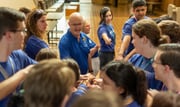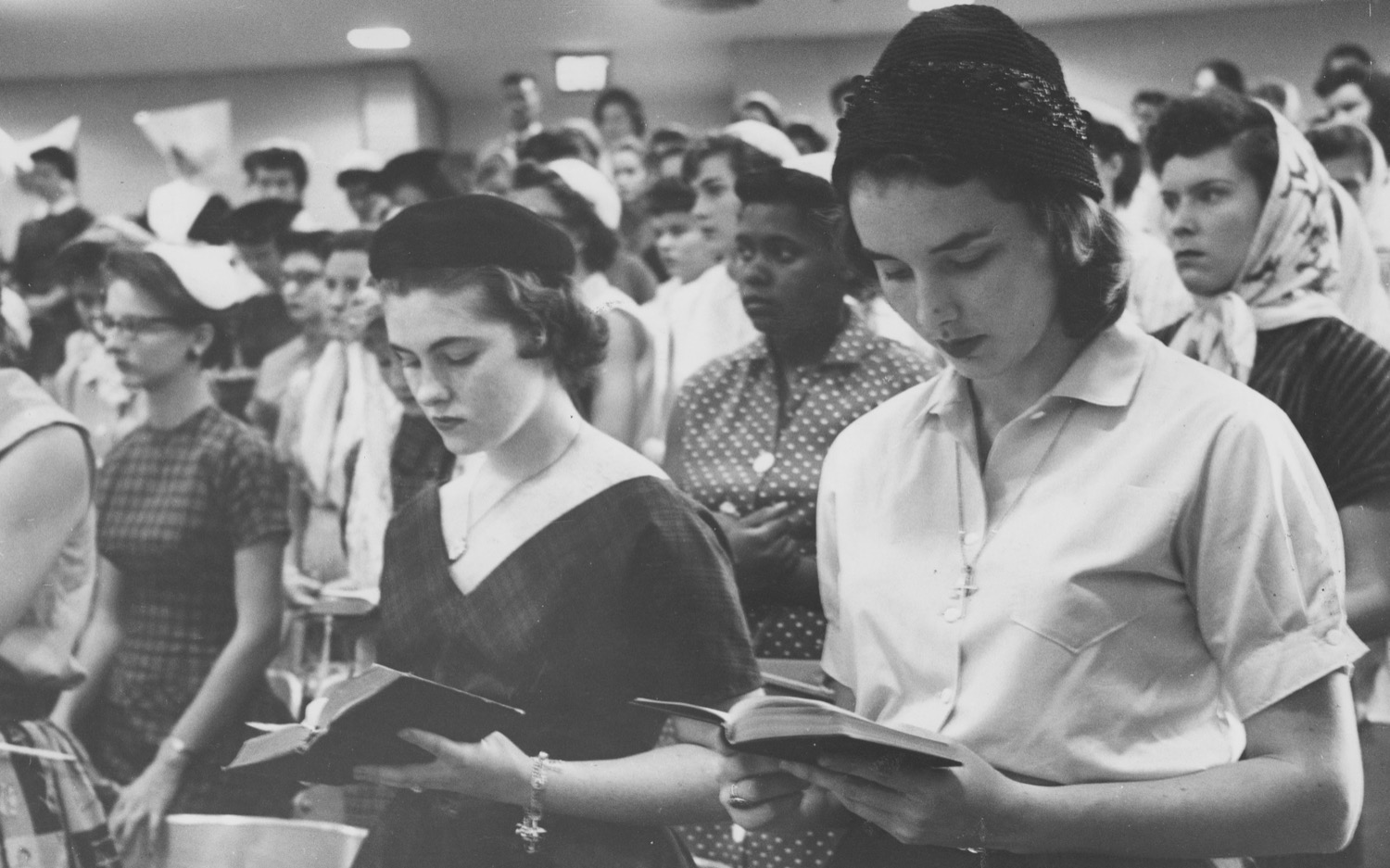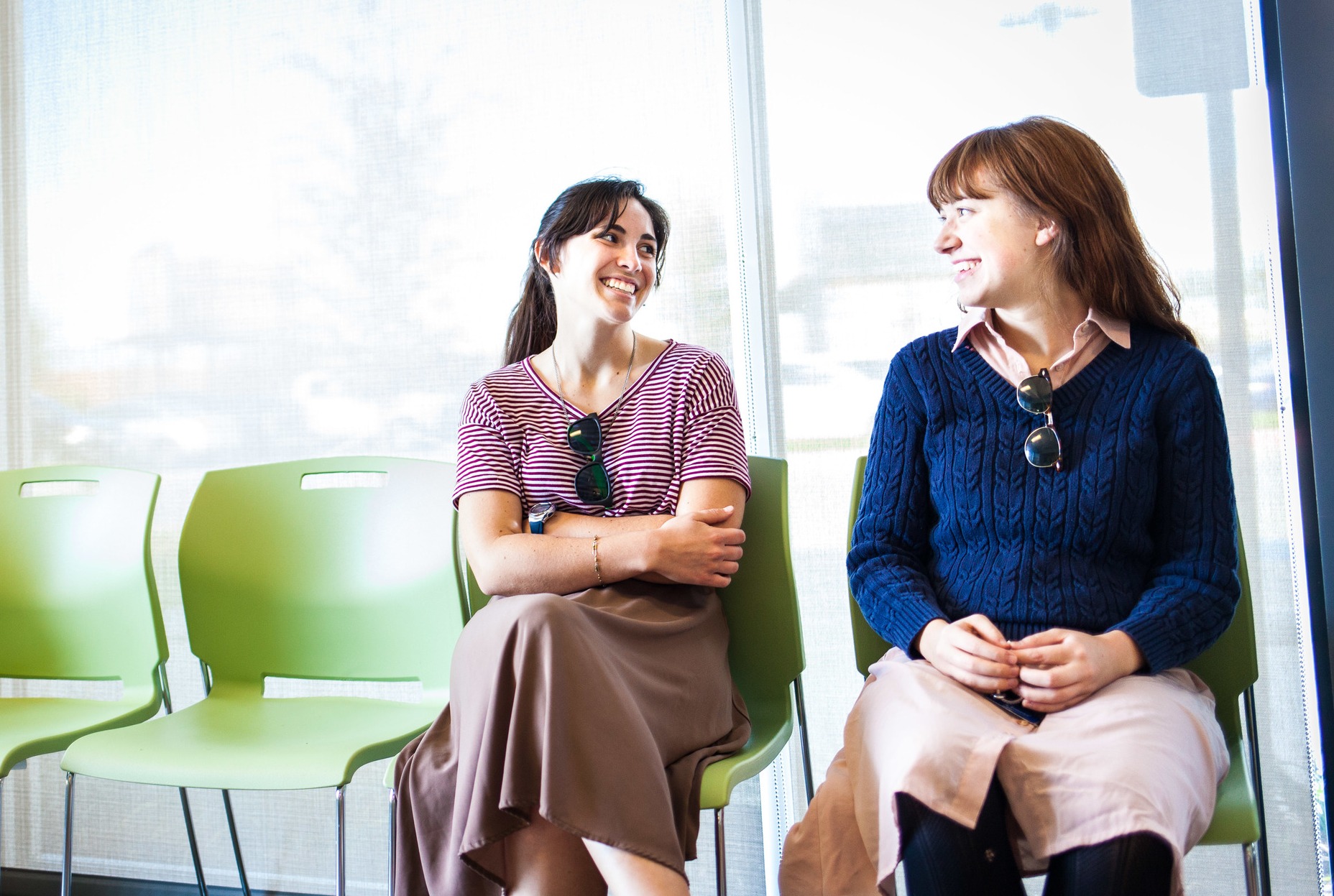UD’s scrappy performing arts programs find an appetite for the classics in audiences and performers.
“The costumes were fabulous,” Professor Emerita of Drama Judy Kelly, BA ’63, remembers about UD’s 1979 mainstage production, Oedipus the King.
“The students used these wooden shoes and masks that completely enhanced the experience of the performance.”
At the time, UD’s choice to produce Oedipus cut against the grain in mainstream theater. More contemporary tastes prevailed; among critics, dust seemed to have settled on Sophocles, Shakespeare and other classics.
Audiences weren’t opposed, though. In fact, both the Department of Drama and the Department of Music have a history of finding an appetite among performers and audiences for something different, a history of bringing the classics to life and new masterpieces to the world.
Underlying both departments are convictions that set them apart from the programs of other universities: that creation can be a spiritual endeavor; that beauty is transcendent and real; that good art requires skill, and that it lasts for a reason.
UD Drama has delivered captivating plays and produced respected theater artists since its inception. Many are to thank for the department’s success, including longtime leaders Patrick Kelly, MFA,
a critically acclaimed stage director, and his wife Judy, a theater critic and former television producer.
Their vision drew an influx of participation from the community and shaped what would become the university’s drama program. UD’s production of Oedipus is just one play of many that secured a lasting place in the memory of the university and North Texas dramatists. After the Kellys’ retirement in 2009, KERA called the Margaret Jonsson Theater “a tiny space that has produced some memorable results” and named Pat “among the finest directors of classic theater in North Texas … and a remarkable director of contemporary plays as well.”
Pat and Judy arrived at UD just as the school was finalizing its “star team” in 1966.
“It was an extraordinary time,” Judy remarked. The school had serendipitously acquired a faculty of gifted scholars that shared a vision for UD, and the Kellys were the missing piece of the puzzle for the robust liberal arts university.
One of their most lasting contributions was modeling UD Drama around great literature, complementing the university’s undergraduate curriculum.
“The unspoken truth,” as Pat put it, “was to make theater that paralleled the students’ study.”
Stefan Novinski, MFA, BA ’92, current department chair, said this guiding principle remains today.
“What makes our Drama Department unique is the way we endeavor to investigate dramatic literature through performance,” Novinski said. “We are not a theater or dance department; our interest is in studying the human person in space before an audience. This is where the art is.”
Like Novinski, Kristin Van Cleve, MM, chair of the Department of Music, sees her field as a crucial part of UD’s educational mission.
“Music fits perfectly into a liberal arts education because it is one of the original subjects of the quadrivium,” Van Cleve points out. “Music is intensely logical and has much in common with mathematics. … Music also contains elements that are harder to quantify. The effect it can have on our emotions and the intensity of feeling that can be engendered by music are not always easy to describe.”
The Core Curriculum’s focus on the great books — on truly exploring and understanding the greatest authors and works of Western civilization — has provided drama faculty with casts ready to breathe life into classic plays. Some of these students continued in stage careers, including the late Silicon Valley star Christopher Evan Welch, BA ’88, Emmy winner Peter MacNicol, BA ’76, and horror mainstay Lara Grice, BA ’93.
Meanwhile, as professional degrees like music production and vogueish experiments with electronic music gain popularity in university departments around the country, UD continues to emphasize instrumental skill. The university’s small size and classical perspective make it perfect for chamber music, an expressive, personal form preferred by faculty for students’ and their own performances.
A baroque violinist as well as a professor, Van Cleve says historical music informs UD’s music program.
“I want to make students aware of what historical performance is: looking at music, approaching music, from the standpoint of how it was approached during the time period in which it was written,” Van Cleve says.
Neither department has limited itself to the classics, though. Welch himself acted in a production of David Mamet’s The Water Engine in 1987, and just last spring, the students decked Beaumarchais’ The Marriage of Figaro in flashy, Tim Burtonesque gaud.
Likewise, Van Cleve and the other faculty members who make up the Crowley Chamber Trio avoid household names. Alongside works by masters as recent as Ernest Bloch, lesser-known pieces that have been heard only sparsely since the Baroque era come to life in their performances.
Both departments are facing the same obstacle. The University of Dallas lacks a music performance center, and as it stands, the Margaret Jonsson Theater is unfit for use today.
Improvements are on the horizon. Preliminary plans are underway to raise funds for the construction of a new performing arts center, a key project of a long-term master campus plan that is also in the works.
In the meantime, UD’s artists have adapted. Choral concerts have made chapels out of common spaces; actors animated the long-dormant outdoor amphitheater during COVID-19. Music students recently performed the opera Dido and Aeneas in Cardinal Farrell Hall, and The Marriage of Figaro filled every seat night after night in the Drama Building performance space. Until new spaces go up, the classics will continue to live on in new generations of performers and the audiences who remember them.



